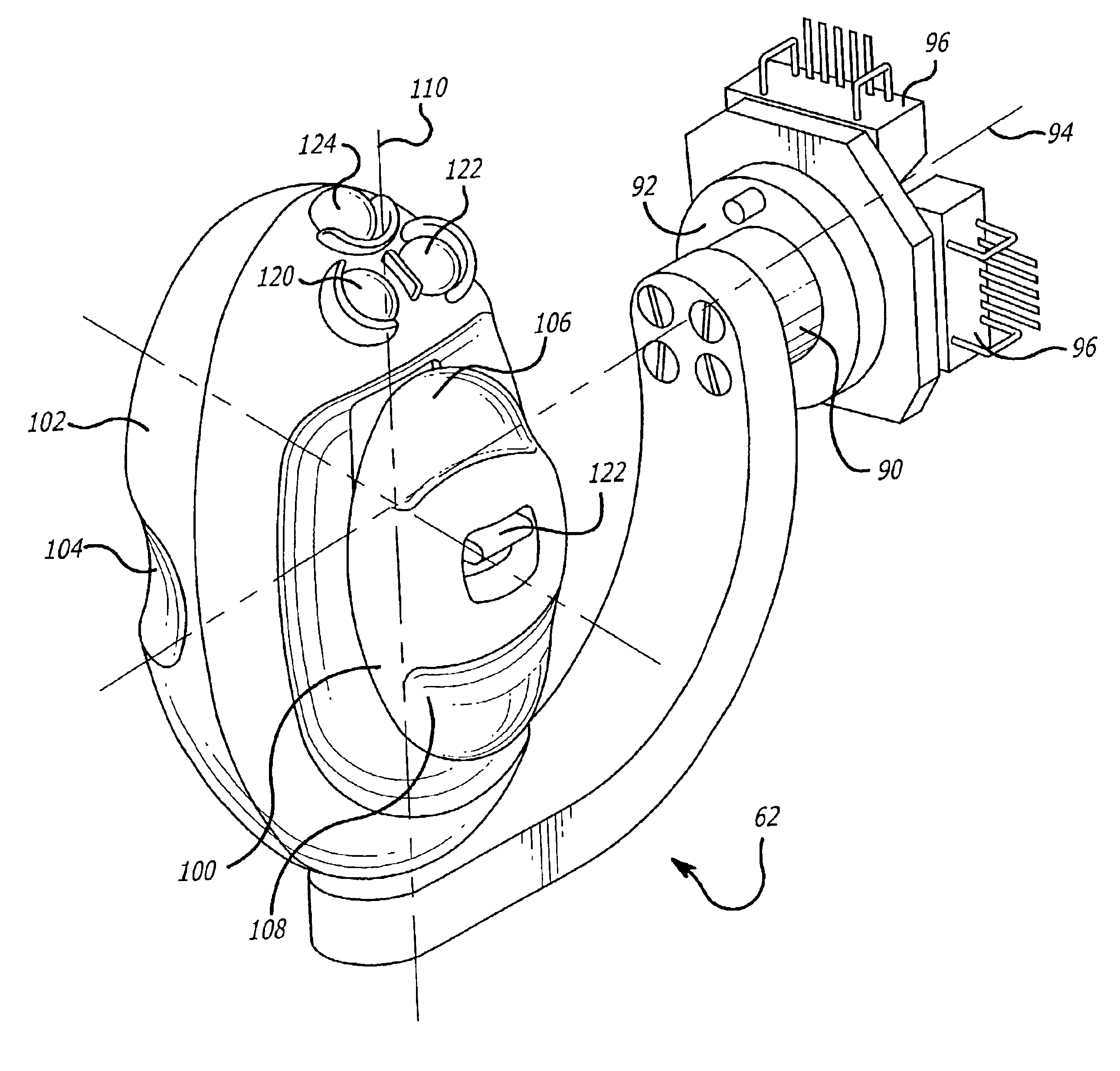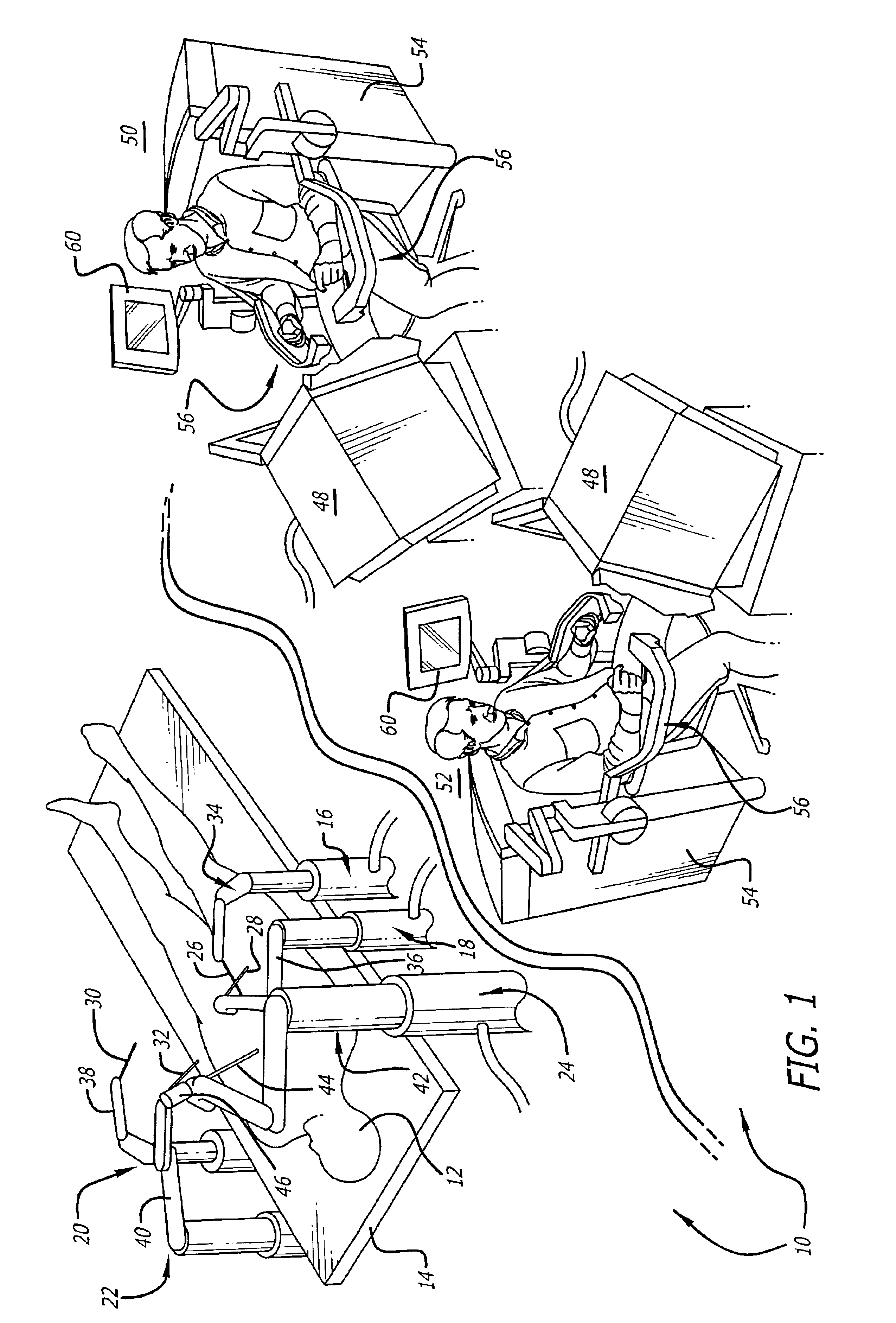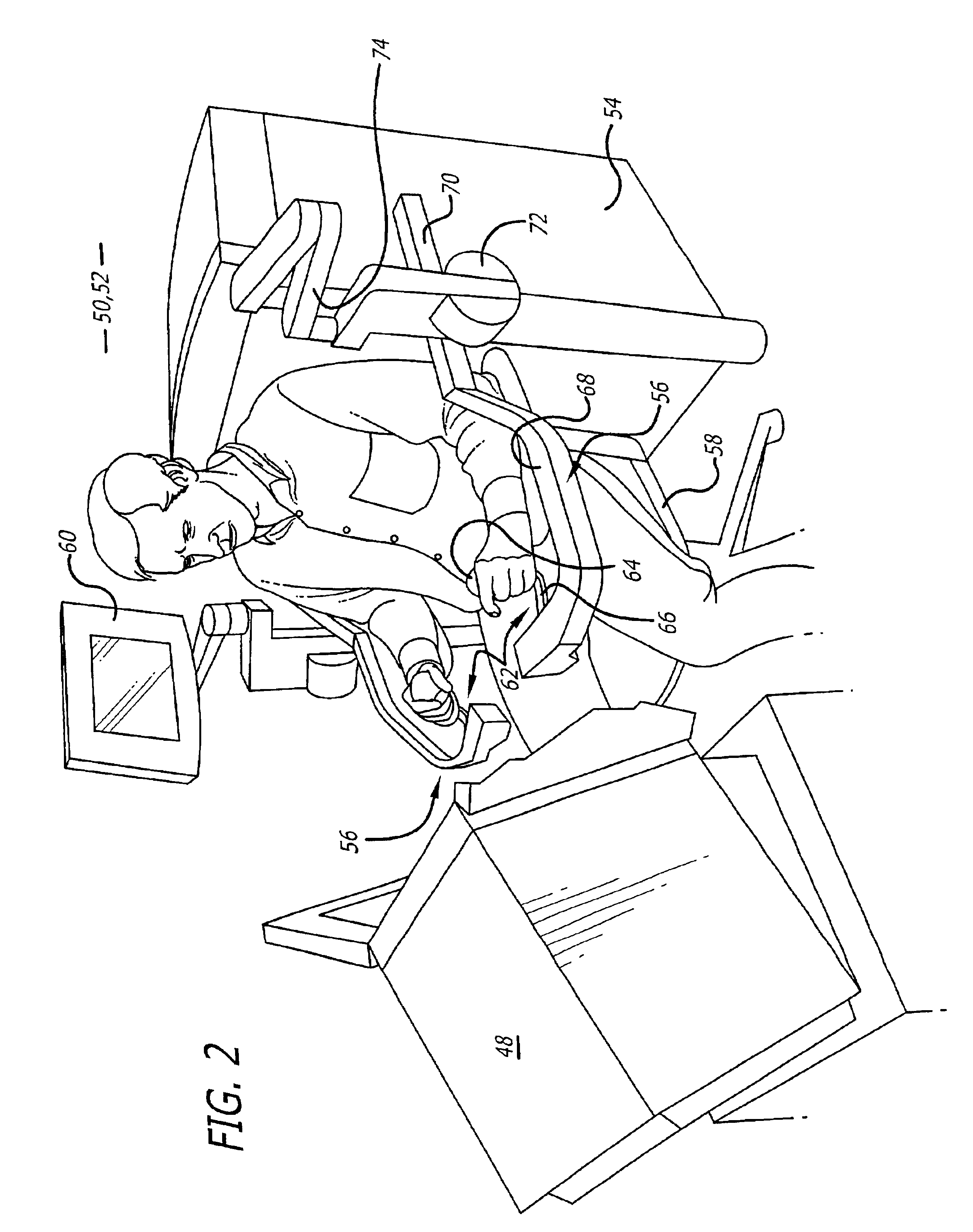Minimally invasive surgical training using robotics and tele-collaboration
a robotic and minimally invasive technology, applied in the field of medical robotic systems, can solve the problems of prolonging the recovery period of patients, deprived the heart of blood and oxygen needed to sustain life, and causing tremendous trauma to patients
- Summary
- Abstract
- Description
- Claims
- Application Information
AI Technical Summary
Problems solved by technology
Method used
Image
Examples
Embodiment Construction
Referring to the drawings more particularly by reference numbers, FIG. 1 shows a system 10 that can perform minimally invasive surgery. In one embodiment, the system 10 is used to perform a minimally invasive coronary artery bypass graft (MI-CABG) and other anastomostic procedures. Although a MI-CABG procedure is shown and described, it is to be understood that the system may be used for other surgical procedures. For example, the system can be used to suture any pair of vessels. The system 10 can be used to perform a procedure on a patient 12 that is typically lying on an operating table 14. Mounted to the operating table 14 is a first articulate arm 16, a second articulate arm 18, a third articulate arm 20, a fourth articulate arm 22 and a fifth articulate arm 24 which may also be referred to as medical devices. The articulate arms 16, 18, 20, 22 and 24 are preferably mounted to the table 14 so that the arms are at a same reference plane as the patient. Although five articulate ar...
PUM
 Login to View More
Login to View More Abstract
Description
Claims
Application Information
 Login to View More
Login to View More - R&D
- Intellectual Property
- Life Sciences
- Materials
- Tech Scout
- Unparalleled Data Quality
- Higher Quality Content
- 60% Fewer Hallucinations
Browse by: Latest US Patents, China's latest patents, Technical Efficacy Thesaurus, Application Domain, Technology Topic, Popular Technical Reports.
© 2025 PatSnap. All rights reserved.Legal|Privacy policy|Modern Slavery Act Transparency Statement|Sitemap|About US| Contact US: help@patsnap.com



